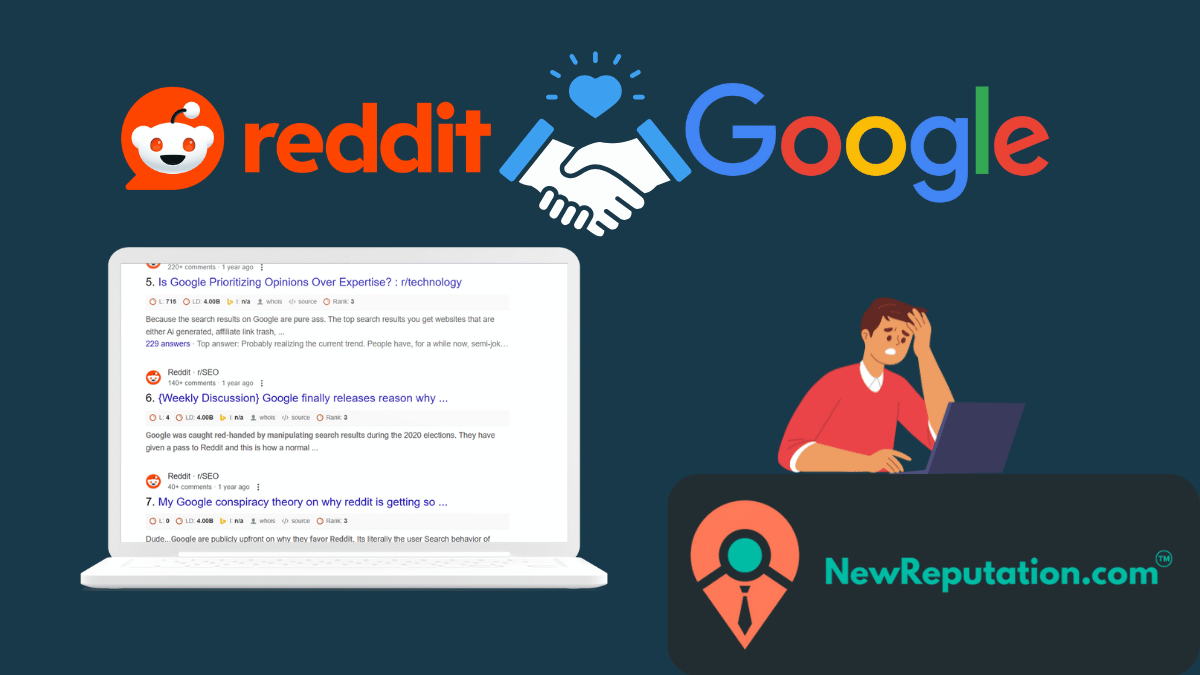UniCourt is a service that provides public records for legal cases. This includes civil cases, criminal records, and court decisions. These records are often publicly accessible, allowing them to be searched on platforms like Google.
UniCourt records appearing in Google searches can be concerning. They often showcase information that you’d prefer to keep private. Thankfully, there are ways to address this. In this guide, we’ll explain how to remove UniCourt records from Google Search.
Why People Want Their UniCourt Records Removed
People ask to remove their UniCourt records for a simple reason they don’t want private legal matters showing up online. UniCourt pulls public court records and makes them easy to find. That includes lawsuits, traffic cases, and even dismissed charges. These records can show up in search results and stay there long after the case is closed. For someone applying for a job or trying to rebuild their reputation, this can be a major problem.
Even if a case is sealed or expunged in court, it doesn’t always disappear online. Third-party websites and data brokers may still have copies. This can put people at risk of damaging their reputation. That’s why so many turn to services that help remove or hide this kind of information.
Understanding UniCourt
UniCourt is a website that makes public court records easily accessible. These records might include details about legal cases or disputes that you’d rather keep private. While this can be a helpful tool for lawyers and other professionals, it can feel invasive if your personal information is listed. If you’ve discovered your name or details on UniCourt and want it taken down, there are steps you can take to protect your privacy.
Court records are often considered public information. UniCourt aggregates this data to make it easily searchable. Unfortunately, this means your personal details, like your name and case information, could be visible online.
How UniCourt Handles Public Records and Privacy
UniCourt publishes legal records online as part of its effort to make court data more accessible. While most of these records are technically public, the way they are collected, organized, and displayed can feel invasive. Anyone can search by name and retrieve details that were once stored in courthouse files.
The company states that it follows privacy laws like the California Consumer Privacy Act. That includes cases involving minors, sealed records, or expunged files. In those situations, some content may be restricted or removed.
To request that something be taken down, a person must submit documents that explain why. That might include a court order or other legal paperwork. Once the request is in, UniCourt looks it over and decides whether the law supports removal. They also consider if the record still matters to the public and whether there’s a strong reason to keep it online or take it down.
How Did My Information End Up on UniCourt?
The United States has long allowed records and court proceedings to be publicly reviewed. The laws and regulations that permit public documents to be published or accessed online are rooted in the following:
- First Amendment.
- Freedom of Information Act (FOIA),
- Each state’s public records law.
There are some exceptions to the rules. For example, if someone’s privacy is more important than the public’s access to court information.
Online court records often come from third-party websites not connected to the legal system. Many court documents are available for law enforcement and courts, but only sometimes on Google, except for federal cases.
Websites like UniCourt search public records and post the court documents they find.
What Public Records Show Up on UniCourt
UniCourt pulls in records from courts and other government sources. You’ll find all kinds of documents, lawsuits, business filings, property records, and sometimes even personal details like marriage or divorce cases. There are also probate records, summaries of criminal cases, and other paperwork from local courts.
Even though this information is public, not all of it can be removed. Some records, like court rulings or business registrations, usually stay online for good. Others might be reviewed if they involve sensitive personal details and someone files a proper request.
If you’re concerned about your online reputation, it helps to understand what’s being shared and how it could follow you. These records may be public, but once they’re easily searchable, they can have a lasting impact.
What to Do if a Record Is Hurting Your Reputation
If you find a court record online that is affecting your reputation or feels like a privacy issue, there are steps you can take. Start by finding out exactly where the record is listed. If it appears on UniCourt’s website, you can go to their contact page and ask for it to be reviewed or removed. It helps to have the case number or a link to the page when you reach out.
You can also contact the court that handled the case. Some records may be sealed or updated if the case has been dismissed, resolved, or qualifies for removal under privacy laws. Call the clerk’s office and ask about your options.
If you have documents that show the case was dropped or expunged, include those in your request. That kind of proof can make your case stronger.
If the record is showing up in Google searches and putting your reputation at risk, you can also use Google’s outdated content removal tool. This is helpful if the content is no longer on the original site but still shows up in search results.
For more complex situations, it may be worth speaking with a lawyer or working with a reputation management service. These professionals understand how to approach both the courts and third-party websites. They can guide you through the process and increase your chances of having harmful information removed or hidden from view.
Steps to Remove Information from UniCourt
If your personal or business information appears on UniCourt, you may want to remove it. This can include court documents, legal documentation, or unsealed records that show up in search results. There are several ways to request removal, depending on the type of information and your legal standing. You will need to make a public records redaction request.
1) Search for your court record on the UniCourt website.
2) Locate the record that you want to remove.
3) Search for your court record on the UniCourt website.
4) Locate the record that you want to remove.
5) Copy the URL of the record you want to remove.
6) Visit the UniCourt removal page https://unicourt.com/case/removeRecord
7) Fill out the form with your details and paste the URL you want to remove.
UniCourt support will then review your court records and respond within 72 hours. Some of the factors they consider when removing (de-indexing) court records:
- Has the record been sealed or expunged by court order?
- Does the record expose the requestor to an increased risk of physical harm?
- Is the requestor a victim of identity theft, and is the record a result of this theft?
- Does the record concern and adversely affect a minor?
What to Do When UniCourt Refuses to Remove a Record
If UniCourt denies your redaction request, it can be challenging to determine the next steps to take. The first thing to understand is whether the issue comes from the court itself. If a record hasn’t been sealed or expunged by the legal system, UniCourt may claim it has no obligation to take it down. In some cases, it’s not UniCourt making the decision, but simply displaying what is still considered public information.
You may want to investigate whether the record qualifies for suppression or sealing under state law. This process usually requires filing a motion through the court. If successful, this can provide you with legal grounds to request removal from platforms like UniCourt.
If you believe your information is being used in a misleading or harmful way, you might also consider speaking with a legal expert. In certain situations, a cease-and-desist letter may be effective if there are grounds for misuse or defamation.
For those who prefer not to handle the process alone, reputation management services can provide assistance. A company like NewReputation can guide you through complex cases and work on your behalf to reduce the visibility of damaging records across the internet.
What to Do After Trying to Remove Your Record
Even if your record is taken down or hidden, your work may not be over. Some sites reupload content. Others scrape data from public databases repeatedly. It’s a good idea to check back regularly to see if anything has resurfaced.
You can also set up a Google Alert for your name. It’s a simple way to get notified when new pages mention you. If something shows up, you’ll catch it early.
In the meantime, try to build a stronger online presence. A LinkedIn profile, personal website, or a few positive articles can go a long way. When someone looks you up, you want them to find content that reflects who you are today not something from a court record.
Role of Reputation Management Companies
Reputation management companies help individuals take control of their online presence. If negative content appears in search results, it can impact opportunities and privacy. Services like NewReputation work to improve online reputation by suppressing harmful content and promoting positive information.
One common concern is UniCourt records appearing in search results. UniCourt collects public records, which may include court cases and other sensitive information. While this data is legal to share under public records policy, many people prefer to keep it private. Reputation management services can help by requesting the removal of outdated or inaccurate records or pushing them lower in search rankings.
Managing privacy concerns is essential. The internet never forgets, but professional services can help shape what people see about you online. If you want to improve your online reputation, working with experts is the best way to protect your image and future.
How do we keep public records off the internet?
While removing your information from UniCourt is a step in the right direction, it’s only the tip of the iceberg.
Getting records removed from UniCourt isn’t always straightforward. Even if you follow the steps, your request can be denied or ignored. On top of that, sites like Trellis and PacerMonitor often copy the same information. So even if it disappears from one place, it might still show up somewhere else.
Trying to handle this on your own can be time-consuming and lead nowhere. That’s where working with professionals makes a real difference. They understand the systems, know what works, and can push damaging links out of sight. If your efforts haven’t been successful so far, we can take over and guide you through the process with a strategy tailored to your situation. Your privacy is worth protecting, and we know how to do it right.
Conclusion
Removing UniCourt records from Google Search requires patience and a strategic approach. Whether you try it on your own or hire a professional, taking action is important. Protect your privacy and control what others see about you online.
If you need assistance, NewReputation is here to help. Contact us today to schedule a complimentary consultation.




